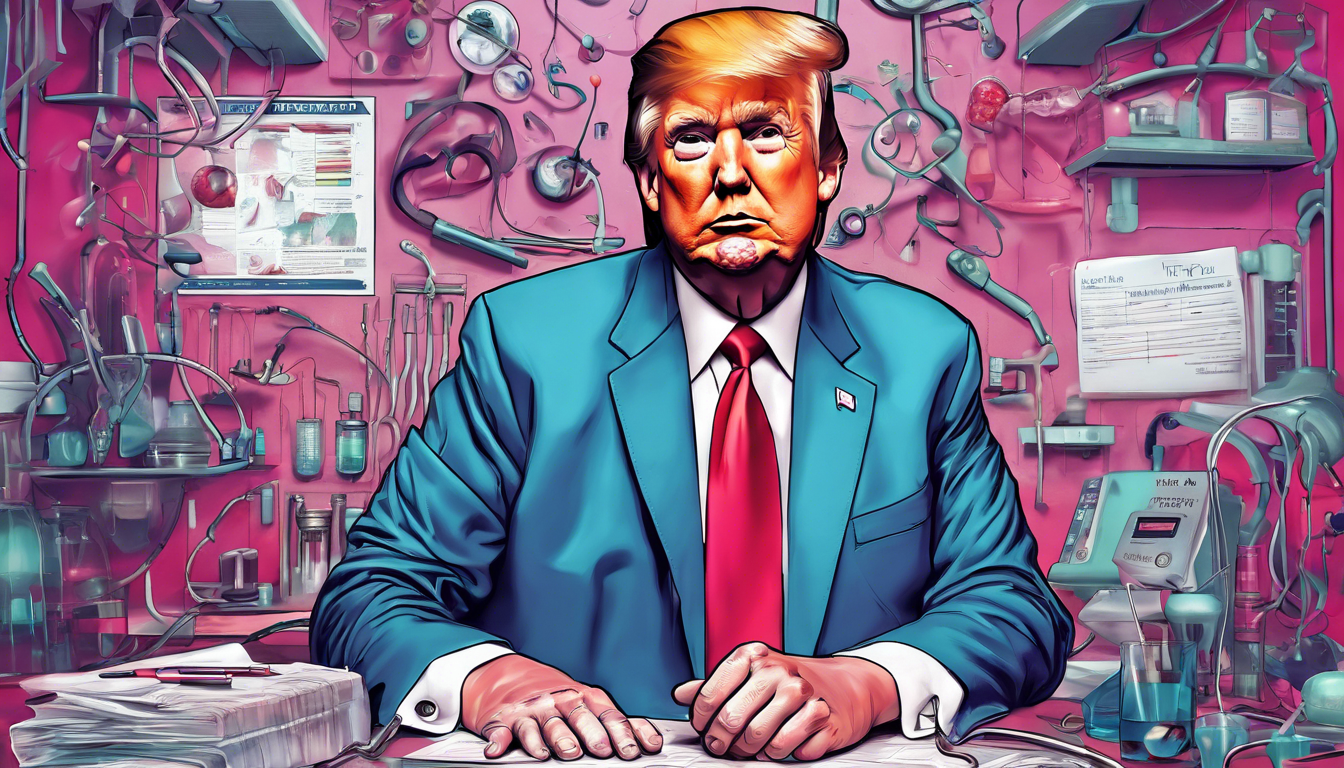In a surprising turn of events following the recent presidential election, President-elect Donald J.
Trump has nominated a new health secretary whose views have raised eyebrows among health professionals and the general public alike.
This nomination spotlights a growing tension within the realm of health policy, ethics, and the interpretation of scientific evidence.
The nominee, who harbors strong political and personal views about health and wellness, has been vocal about his mistrust of large corporations in the healthcare sector, while simultaneously promoting unfounded and controversial health claims.
One of the most contentious points of his nomination is his firm opposition to the addition of fluoride in drinking water—a public health measure that has been widely endorsed by numerous health organizations.
Additionally, he has supported unverified therapies for Covid-19, indicating a risky departure from established medical guidelines.
This raises urgent questions about the future of health care, medical integrity, and the potential for legal ramifications against dissenting voices in the medical community.
Therefore, understanding the implications of this nomination is crucial for consumers concerned about the future of public health.
Key Takeaways
- The nominee’s mistrust of big business raises questions about their commitment to evidence-based health practices.
- The opposition to fluoride in drinking water reflects a broader trend of disregarding established scientific consensus.
- Potential legal actions against dissenting medical journals threaten the integrity and freedom of health discourse in the US.
The Nominee’s Controversial Stances on Health Issues
The recent nomination of a new health secretary by President-elect Donald J.
Trump has generated significant debate due to the nominee’s controversial stances on critical health issues.
Known for voicing strong skepticism towards big business within the health and wellness sectors, the nominee’s views stray from mainstream medical consensus.
A particularly contentious position involves the opposition to adding fluoride to drinking water—a practice endorsed by public health organizations for its benefits in reducing dental decay.
Critics assert that this opposition hinges on unfounded claims rather than scientific evidence, sparking alarm among health experts.
Furthermore, the nominee’s endorsement of unproven therapies for COVID-19 raises serious concerns about a potential shift away from evidence-based medical practices.
This could jeopardize patient safety and public health initiatives at a time when scientific integrity and reliable information are crucial.
Moreover, reports suggest that there could be legal ramifications for medical journals publishing research that contradicts the nominee’s perspectives, further alarming those who prioritize open scientific discourse.
The implications of such actions could hinder the essential flow of information critical to public health decision-making.
Implications for Public Health and Medical Integrity
The potential ramifications of these controversial views extend beyond individual policies to threaten the broader framework of public health and medical integrity.
As a health secretary with such unorthodox positions gains influence, there is a fear that policy decisions will be swayed by personal beliefs rather than robust scientific evidence.
This trend may not only undermine trust in public health authorities but could also set a precedent for dismissing legitimate scientific discourse in favor of ideological conformity.
Additionally, if the nominee targets research contradicting his views, it could discourage researchers and medical professionals from publishing critical studies, consequently eroding the foundation of unbiased medical research.
Patients and healthcare providers alike must remain vigilant in advocating for health policies grounded in solid evidence, as these changes pose a direct challenge to the integrity of the healthcare system and ultimately, the well-being of the public.











